Job seekers tend to be rather meticulous about recruitment interviews. They research what they should wear, how they should sit, and even what they should eat before the interview.
Yet too many people miss a critical opportunity to showcase their strengths and leave a powerful lasting impression. I’m talking about the “Is there anything you’d like to ask us?” point in an interview.
It may be difficult to come up with a great question on the spot. So I reached out to 12 career experts and asked them: What are the two questions that every candidate should ask in a job interview?
The results have been fantastic. These industry gurus took time out of their busy schedules to share their perspectives and valuable insights with me, an experience that I, as a new blogger, found incredibly humbling.
So read on to discover the best questions to ask in your next interview (responses are listed in the order they were received in). For fuller experience, you can also check some essay samples with students sharing their stories about applying to jobs and being interviewed.

Miles Jennings, founder and CEO of Recruiter.com, an online recruiting service.
On choosing questions strategically if you lack experience
The key hurdle for recent grads to overcome during the interview process is the perception of hiring managers that it will take a very long time for them to come up to speed. The hiring manager or HR rep will often think that relatively inexperienced people will take tons of hand-holding and management oversight before actually being productive.
One of the best things for new grads to do is to acknowledge and alleviate this fear by asking smart questions during and at the end of job interviews. Ask questions that demonstrate your resolve to quickly and independently learn such as, “I’m very eager to learn everything I can so that I can quickly be a real contributor to the team. Besides asking people questions all the time, what else can I do to come up to speed as fast as possible?”
Also, include questions that show your desire to do what it takes, such as, “Above and beyond the job description, what can I do that would really help out your team? If I got done all of my assigned tasks for a day, what else can I take on?”
Learn more about Miles and follow him on Twitter.
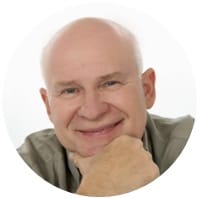
John Kador, independent business writer and author of the bestselling handbook 301 Best Questions to Ask on Your Interview.
On discovering the interviewer’s values and reservations
- By what criteria will you select the ideal candidate for this position? Listen carefully and you will know what the interviewer values most.
- Do you have any reservations about my qualifications?
This seems to be a risky question, but don’t worry. Few interviewers will give you honest feedback. Doesn’t matter. They’ve registered your confidence. And in rare cases, you might even get a chance to address a reservation. The question is especially appropriate if the position has any element of sales. All salespeople know, a hidden reservation will kill the deal every time. It’s always better to ask for the reservation.
Learn more about John and follow him on Twitter.
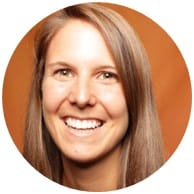
Lindsay Kolowich, lead writer for the HubSpot Marketing Blog and author of dozens of articles on marketing and productivity.
On preparing yourself for challenges
In my opinion, the two questions every candidate should ask in a job interview are:
- What are some of the challenges or roadblocks one might come up against in this role?
- What behaviors does the most successful member of the team exhibit? Please give me an example.
The candidate will probably get a pretty good idea of things like the metrics used to measure success in the role from the job description and the interview itself. But the questions I listed above address parts of the role that she likely won’t get to hear unless she brings them up herself. The answers to these questions will help her understand some of the less-than-ideal aspects of the job, and a practical example of what success looks like in the role. This kind of information is really helpful for helping the candidate determine if she’s a good fit for the role and for those challenges.
Read Lindsay’s work and follow her on Twitter.
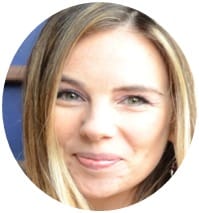
Melissa Suzuno, content marketing manager at Greenhouse, a recruiting software company, and former content marketing manager at AfterCollege.
On considering your needs and priorities
- Spend some time thinking about what your biggest priorities are in the workplace, e.g. do you value having unlimited paid time off, learning and development opportunities, a strict “no email after hours” policy, a really fun and lively office environment, or something else? Whatever it is, think about this before your interview. Then be sure to ask about the company culture in relation to that specific thing or those specific things during the interview.
- Just as job interviewers ask you some behavioral questions, you can do the same to them! Think about a negative work experience you’ve had in the past (if you don’t have much work experience, think of a time you worked with a group on a project or as part of a team) and ask the interviewer how their company has handled a similar experience. For example, you might ask “How does your CEO motivate employees when the company isn’t doing well financially?” or “What do you do when one team member isn’t doing their share of the workload?”
Learn more about Melissa and follow her on Twitter.

Linda Allen, managing editor and owner of Ms. Career Girl, a community of professional women.
On being bold
That really depends on where you are in the interview process. Since the candidate usually gets the opportunity to ask questions after fielding those from the interviewer, I’ll answer from that perspective. You like what you’ve heard, and you’re interested in the position.
- What are the company plans for future growth and new products?
- When do I start?
Lots of people finish the interview and fail to close. If you want the job, ask for it!
Learn more about Linda’s work and follow Ms. Career Girl on Twitter.

Louise Fletcher, president and executive resume writer at Blue Sky Resumes, a professional resume writing company.
On making sure you like the job
Most people focus on making a good impression in an interview, but it’s just as important to determine if the job is right for you. For that reason, I recommend asking:
- What would success look like in this position?
That question helps you understand a) if this is a job you can do (are their expectations realistic and within your skill set?) and b) is it one that you would want (are you interested in the work they want done).
- What are the personal characteristics that make people successful in this company/department?
Both questions are designed to help you explore whether you want the job, but they will also impress your interviewer, who will see you your commitment to making sure you can succeed.
Learn more about Louise’s work and follow her on Twitter.

Chris Russell, founder of CareerCloud, a career media company, and job board consultant at JobBoardSecrets.com.
On checking whether the company is great to work at
First, I would ask why the position is open. I want to know if it’s due to new growth, promotion, or other reason why they are hiring for it. If someone quit, that could be a red flag.
Second, I would ask what makes the company different. In other words, give me a reason to work here. If they can’t answer that question with a plausible answer, then it may not be the greatest place to work.
Learn more about Chris and follow him on Twitter.

Lysha Holmes, owner and recruitment consultant at Qui Recruitment, a Rec2Rec consultancy.
On learning from the interview
What advice would you offer to me in terms of how I’ve presented myself and my experience?
What qualities and skills do you think the ideal candidate should present for this role?
Learn more about Lysha and follow her on Twitter.

Patrick Lund, CEO and co-founder of Graduateland, a recruitment service for students and recent graduates.
On being authentic, pragmatic, and personable
The questions an applicant asks in an interview are a good, if not the best, way to assess whether someone is enthusiastic about the job and has a basic understanding of what it entails. Anyone can sit there and nod along while I describe the role and the company. But a pointed question about, for example, the way our product works or how we see ourselves compared to e.g. LinkedIn really shows that they have done their research and know that Graduateland is navigating in the recruitment/tech space. I can always detect if they are genuinely interested.
But if you’re looking for two MacGyver questions that will work in nearly every interview context, I’d go for:
- What are the priorities and main challenges for the role?
This is a good question for an applicant to get a clear sense of the expectations an employer has set for the job. To a hiring manager this question sends the message that someone is ready to roll up their sleeves and dig in from day 1 – you can’t go wrong with pragmatism.
- What do you like about working here?
By addressing the interviewer on a more personal level, an applicant has a chance to get a glimpse into the company culture and work atmosphere – something that is often hard to assess from the outside. Whatever the response is, you can then see if it matches the image you have had in your mind and if you feel attracted by it.
Learn more about Patrick and follow him on Twitter.
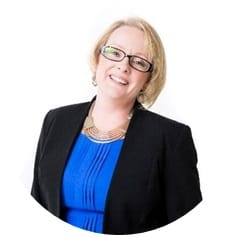
Rebecca Fraser, career coach and industry speaker at Australia-based Rebecca Fraser Consulting.
On setting the right expectations
What does an average day look like in this role?
This question will allow you to develop a greater understanding of what to expect from the position whilst also ensuring that both the interviewer and yourself are on the same page. Many positions are advertised from traditional job descriptions, however, organisations are seeking a much greater level of breadth in an employee in today’s market. Understanding what an average day looks like will provide additional information that you can use to measure this.
What is the average tenure of an employee?
This question may not be relevant to individuals looking at contract roles, however, in understanding the longevity of people within the organisation you get a greater understanding of career progression opportunities internally. This question should lead to the interviewer talking about the culture, what they do to retain their staff and why people stay within the organisation. If you are after quick career succession, an organisation with too much stability in its workforce may not be the right fit for you. However, if you are after a position and organisation to grow with, understanding if this occurs within the organisation is imperative.
Learn about Rebecca’s work and follow her on Twitter.
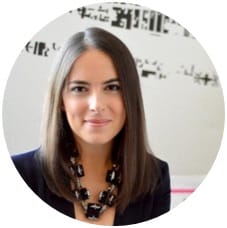
Jaime Petkanics, founder and job search advisor at The Prepary, a job search consulting service.
On always customizing your questions
I believe that the best questions to ask your interviewer are ones that are thoughtful, customized to the person and conversation, and grounded in research. You should also be asking things you genuinely care about, showing your interviewer that you’re actually engaged and interested in the company and the role versus just asking a question you think they want to hear.
Learn Jaime’s story and follow her on Twitter.
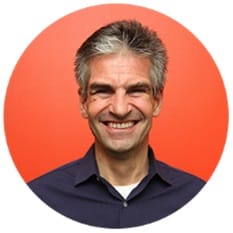
Peter Harrison, CEO of Snagajob, a search engine website for hourly jobs.
On learning about job prospects and growth
- How do you help your employees grow professionally and what should I expect to be doing a year or two from now?
This shows that you are ready to work hard to be successful and are interested in growing with the company. This is especially important for hourly workers, as companies have to deal with high turnover and are interested in strong employees who will stay with the company and have the potential and interest to join the management ranks.
- What might I expect a typical work day/week to look like?
By asking this, you demonstrate your interest in understanding what the position you’re interviewing for entails and whether you would make a good fit for it. Discussing position expectations and duties helps you ensure that you like the job and that you have the skills to succeed in it. Confirming you are on the same page with your potential employer shows your willingness to cooperate and helps guarantee a successful match.
Learn more about Peter and follow him on Twitter.
Those are some incredible job interview questions right there! Quite frankly, I wish I had known them before, so I would not have just shaken my head and mumbled, “Hmm… No, not really” when prompted to ask a question in an interview.
Many thanks to the experts who contributed to this post, as I’m sure their insights will help many job seekers avoid my mistakes.
Now, what about you? Is there a question you always ask in a job interview? Do you think asking questions has helped you land a job in the past?




![The Complete Guide to Getting Funding for a Student Research Project: 6 Steps & 39 Resources [2024]](https://ivypanda.com/blog/wp-content/uploads/2021/09/happy-young-asian-businessman-businesswoman-meeting-brainstorming-some-new-ideas-about-project-309x208.jpg)

![How to Write a CV: 11 Useful Tips [Infographic]](https://ivypanda.com/blog/wp-content/uploads/2020/11/company-human-resource-hr-is-holding-resume-application-tablet-hand-309x208.jpg)

I completed my MBA degree in 2014. After that, I go for some govt jobs coaching but I didn’t achieve any of now, Now I want to prefer private jobs for my next step. Could please suggest to me which is the best course for achieving a job in the private sector, My MBA specialization in Finance and marketing, please help me, sir.
I’m not a career expert, but I would advise you to reach out to one of the career experts mentioned in the article or find other experts on the internet and ask.
Thanks for stopping by.
Below are 12 interview questions to ask in a pre-interview. As career experts, we enable companies to win by helping employees build successful careers in the Human Age.
Hi Julia,
What career experts are doing is great and laudable. Indeed, they encourage, they help, they allow becoming better.
Thanks for your feedback!
I don’t have rich experience in job interviews, I had the only one interview in my life, but it was unforgettable. The atmosphere was very calm and friendly. They asked me about my education, experience, and my plans for the future. I was rather frank and gave true answers. Could you tell me, was it correct? When they asked me about my experience, I hesitated about the answer, but still, I said that I had no experience because it was true. What do you think?
First of all, thank you for the feedback, Anna!
I believe you did the right thing. Honesty is key to a successful interview. Let’s imagine: you told them lies, and you’d got experience. Firstly, interviewers are good at noticing a lie. And of course, they would ask you further questions with more details. The perspective isn’t optimistic if you lie, don’t you think?
It’s fine you have no experience, a more important thing is willing to obtain it. Lack of practice should be replaced by taking a lot of courses related to the field of work, workshops and so on.
Cheers!